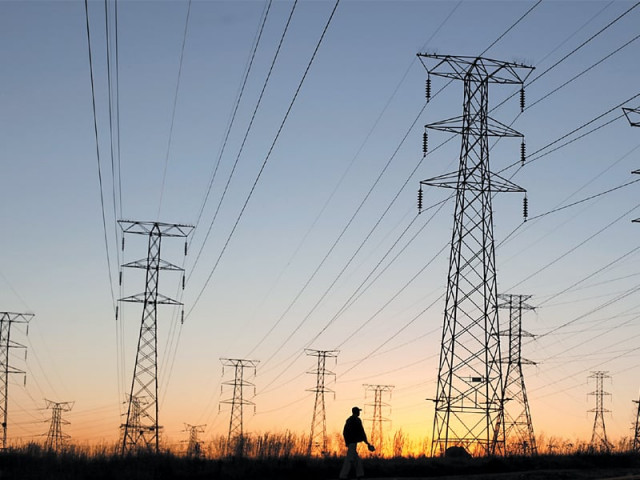Power distribution: NA body highlights steps to improve performance
Recommends privatisation of power companies, removal of subsidies.

The committee also recommended that private sector producers as well as provinces should be allowed to sell electricity directly to consumers, using the distribution network of DISCOs by paying ‘wheeling charges’ to them. PHOTO: FILE
A committee of the parliamentary panel on energy crisis has suggested that power distribution companies (DISCOs) should be privatised and tariff subsidies phased out except for people consuming less than 100 units a month and for agricultural consumers.
The sub-committee submitted a report to the National Assembly Standing Committee on Energy Crisis that met in the Parliament House on Wednesday with Engineer Usman Tarkai in the chair.
In the report, the committee recommended that private sector producers as well as provinces should be allowed to sell electricity directly to consumers, using the distribution network of DISCOs by paying ‘wheeling charges’ to them.
“An integrated energy plan needs to be developed immediately for optimum utilisation of domestic and imported energy resources to encourage investment in the energy sector and to establish short, medium and long-term goals for power generation,” the report said.
It called for deepening reforms in DISCOs with assessment of management performance based on achievement of targets with respect to improvement in efficiency, curtailment of losses and increase in bill collection.

Tariff recommendations of the National Electric Power Regulatory Authority (Nepra), especially the implementation of specific tariffs for DISCOs rather than a global tariff, should be seriously considered.
Existing private sector power producers – captive or independent plants – should be allowed to have direct electricity sale and purchase agreements with large consumers with wheeling charges payable to DISCOs.
Friction and conflict of opinion between Nepra and DISCOs need to be reduced and administrative measures, including tariff determination and circular debt reduction, need to be implemented without delay.
The report suggested that the hierarchical structure and ownership of power system should be streamlined and clearly defined. Load-shedding planning should be improved and ad hoc power outages should be eliminated.
“Power generation fuel mix needs to be optimised with higher percentage of hydel, coal, gas and alternative energy-based plants and reduced reliance on oil-fired plants,” the report said and stressed that the potential of Thar coal for power generation should be clarified.
The panel held the government responsible for the worst energy crisis as it could not tackle the inefficiency of power companies despite injecting billions of rupees. Power firms failed to reduce transmission and distribution losses, which were one of the major reasons for outages across the country.
It noted that thousands of surplus employees were appointed in DISCOs that put an additional burden on the power sector.
Abdul Qadir Khanzada, a member of the panel, said the government had spent billions of rupees on improving the lot of power companies but nobody questioned the results.
Ayatullah Durrani chastised senior officials of the power ministry for creating so many departments to serve their interests that caused unnecessary delay in work rather than expediting it. He called for starting one-window operations in the ministry to address energy shortages.
Nepra officials, who were present in the meeting, told the panel that the government had injected billions of rupees worth of subsidy into inefficient power plants, but it did not benefit the people. They suggested that DISCOs should have independent boards that can take decisions independently.
Water and Power Additional Secretary Zargham Ishaq Khan said final report of the worst power breakdown in the country in February would be submitted to the prime minister on Friday, adding frequency outage was the major reason for the blackout.
In his concluding remarks, Committee Chairman Engineer Usman Tarkai claimed that the present government had inherited issues like financial crisis that directly affected all sectors.
He alleged that the government had appointed thousands of people in DISCOs and ignored technical matters. “Therefore, generation has not improved and we are facing load-shedding.”
Published in The Express Tribune, March 14th, 2013.
Like Business on Facebook to stay informed and join in the conversation.



















COMMENTS
Comments are moderated and generally will be posted if they are on-topic and not abusive.
For more information, please see our Comments FAQ